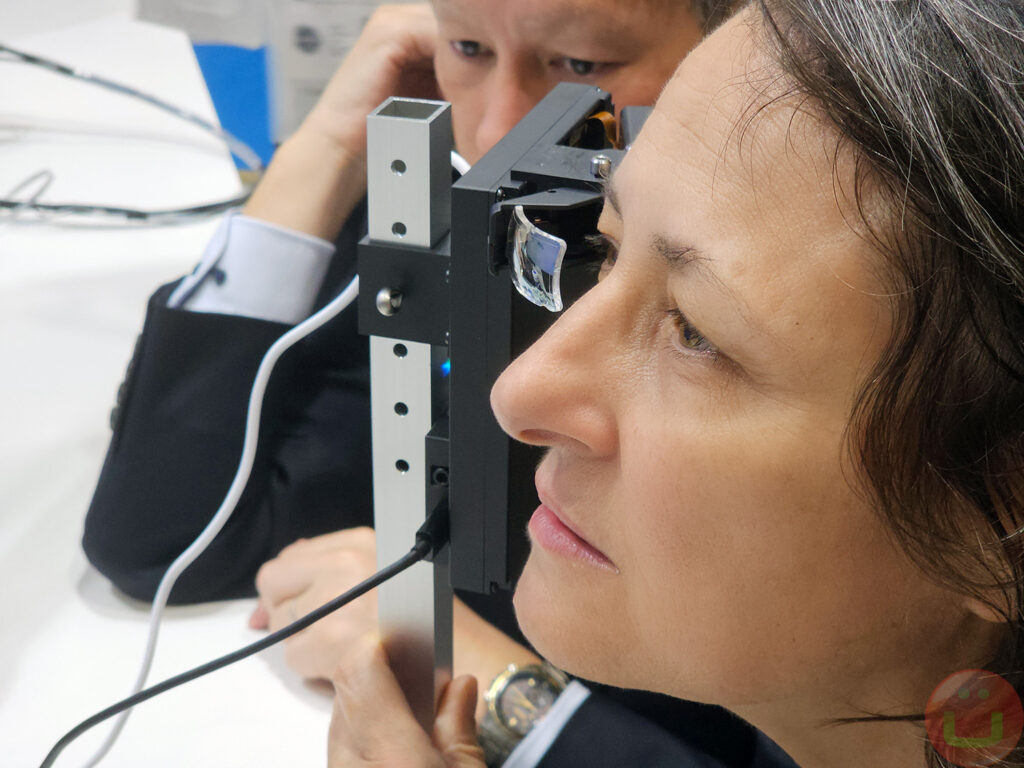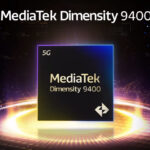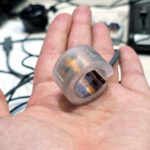At CEATEC 2024 in Tokyo, TDK unveiled its latest hardware components for AR/VR smart glasses, showcasing a series of innovations highlighting its continued focus on retinal projection technology. This year’s advancements build upon TDK’s efforts to refine direct retinal projection, a system that offers unique AR/VR industry benefits.
One of the most anticipated updates was the upgraded resolution of TDK’s retinal projector, which now supports 1080p, up from 720p in the previous model shown at last year’s CEATEC. Although many of the demonstrations at the event still operated on the 720p version we tested in 2023, the prospect of a 1080p version was exciting. While a 1080p resolution might seem modest compared to other display technologies, it’s worth noting that last year’s 720p projector delivered sharp, readable text and immersive visuals. This new 1080p version promises further clarity, especially in fine details, making it a solid step forward for retinal projection-based AR/VR systems.

Another standout reveal from TDK was the announcement of the “world’s first full-color laser control device for 4K smart glasses,” made possible by lithium niobate (LiNbO3) thin film technology. This development represents a significant leap in laser control, enabling much faster color changes than conventional systems. Traditionally, visible light lasers used for AR/VR applications control color by adjusting the electrical current, a relatively slow process. However, the lithium niobate thin film technology in TDK’s new device allows color changes through voltage control, which increases the speed of these shifts by over ten times.
This breakthrough is significant for AR/VR devices because it allows them to support a 4K resolution (or even higher in the future), making future experiences even more immersive while reducing power consumption—a critical factor for mobile smart glasses. In collaboration with QD Laser Co., Ltd., TDK demonstrated the potential of this device, combining it with their direct retinal projection technology in a video demo. Hopefully, we can try that one soon.
Beyond AR/VR, TDK sees broader applications for this technology. The high-speed control capabilities of lithium niobate thin film can be utilized in fields such as high-speed optical communication for data centers. As data volumes grow due to digital transformation (DX), faster optical communication is in high demand. This is where financial growth could be generated in the intermediate term.
Filed in . Read more about Augmented Reality (AR), CEATEC, Ceatec 2024, eXtended Reality (XR), Japan, Tdk and Virtual Reality (VR).


